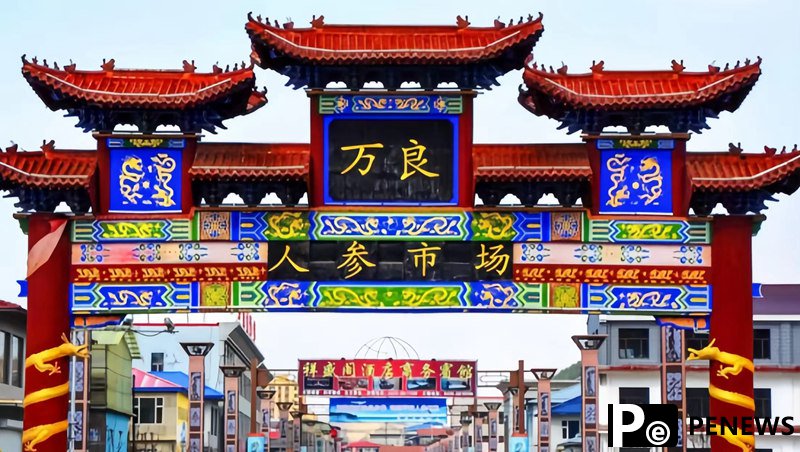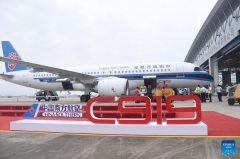Home>>
Ginseng in NE China's Changbai Mountain grows into 'gold mine'(People's Daily Online) 09:51, August 30, 2024
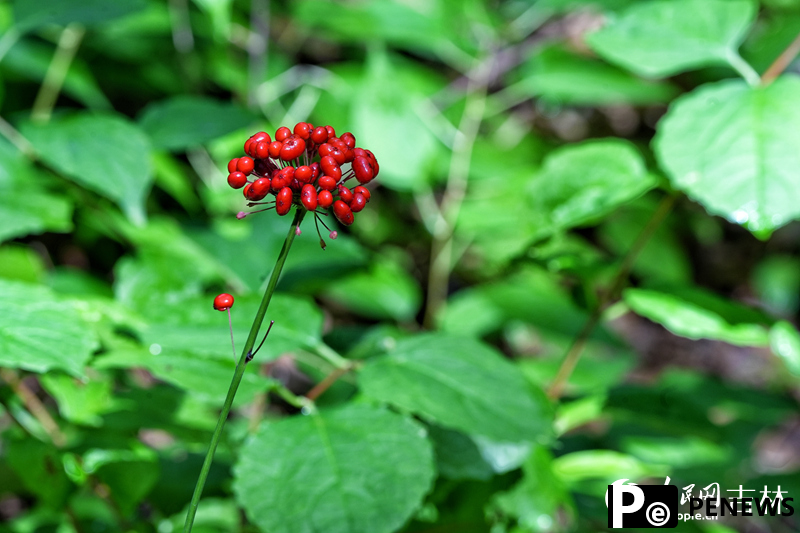
Photo shows ginseng berries in Changbai Mountain, northeast China's Jilin Province. (People's Daily Online/Li Yang)
After a summer of abundant rainfall, ginseng plants deep in the Changbai Mountains have grown vigorously. These plants are about to undergo a remarkable transformation as they are harvested by the so-called "mountain men."
In recent days, Sun Liangzhu, a master ginseng hunter, and his apprentices have been venturing deep into the forest to "release the mountains" – a term used in the Changbai Mountain region to describe the tradition of gathering wild ginseng, now listed as a national intangible cultural heritage.
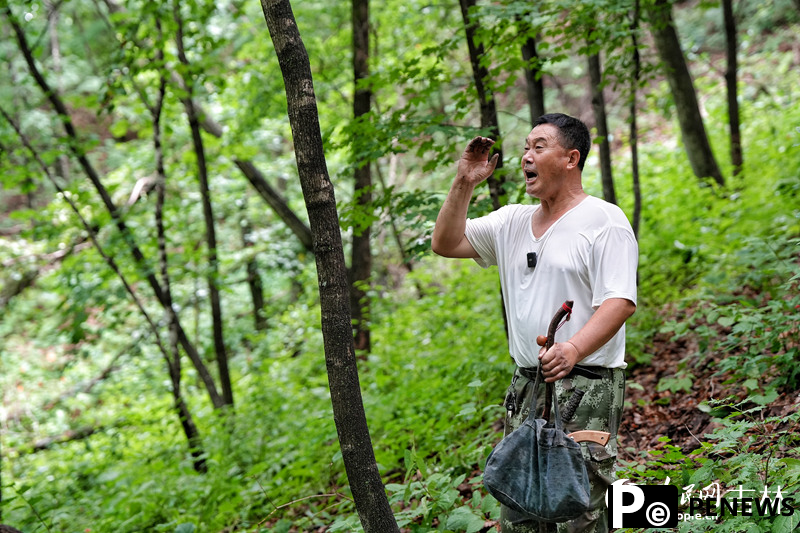
Sun Liangzhu, head of a wild ginseng digging team, calls out to his team members after finding ginseng in Changbai Mountain, northeast China's Jilin Province. (People's Daily Online/Li Yang)
Selecting the best location, preparing ropes, and carefully observing the growth of the ginseng... "This year, the weather in Changbai Mountain has been favorable, and the ginseng is growing well," predicts Sun, looking at the lush flowers on the "five-leaf" ginseng plants.
The Changbai Mountain region is China's main ginseng-producing area. At that latitude, with specific slope angles and light conditions due to the density of trees, ginseng thrives. In 2023, Jilin Province harvested 34,000 tonnes of ginseng, and the comprehensive output value of the industry grew by 10.3 percent year-on-year, exceeding 70 billion yuan ($9.83 billion) for the first time.
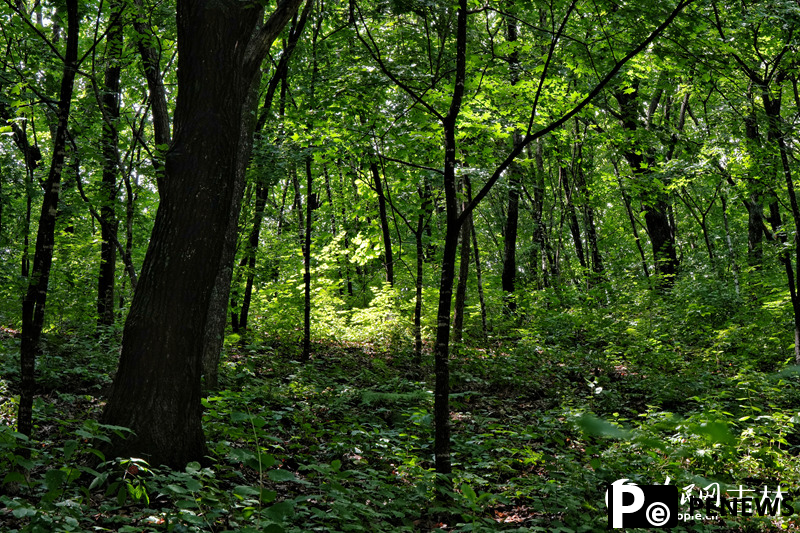
Photo shows a lush forest in Changbai Mountain, northeast China's Jilin Province. The forest provides a suitable environment for ginseng growth. (People's Daily Online/Li Yang)
King of all herbs
Recently, the Changbai Mountain region has entered its peak tourist season, and ginseng specialty stores in Fusong county, a major ginseng-producing county at the foot of the mountains, have entered their busiest sales period.
"This display cabinet contains wild ginseng over 15 years old, each certified by the 'Changbai Mountain Ginseng Brand'. You can buy with confidence," says Chen Qiang, manager of a ginseng specialty store in Fusong.
Chen Qiang has been involved in the ginseng trade since childhood, following in his father's footsteps. He greets customers with a smile, saying, "Nowadays, the ginseng industry is thriving, and prices are good. This little ginseng plant has led us merchants to a better-off life."
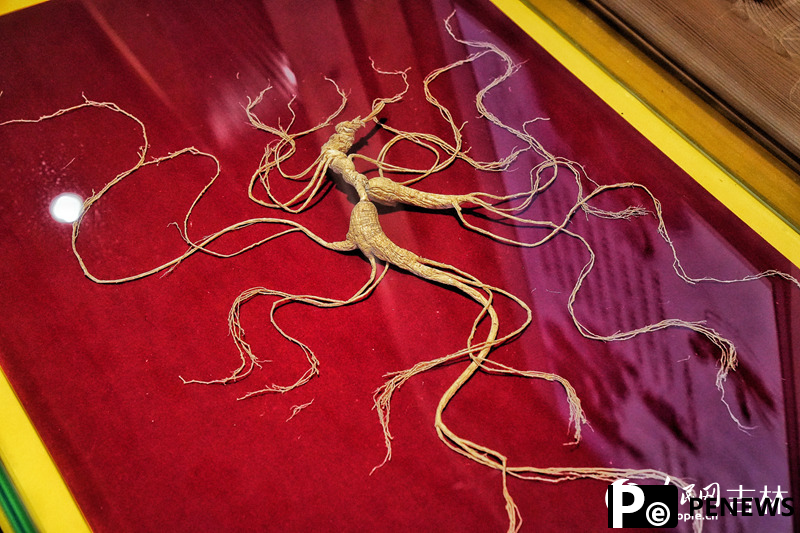
Photo shows a ginseng root from Changbai Mountain, northeast China's Jilin Province. (People's Daily Online/Li Yang)
Although the current prices are "good," ginseng, known as the "king of all herbs," once sold for the price of a common vegetable in its main producing areas.
"In those days, every household produced and sold ginseng independently, blindly expanding planting areas and using pesticides and fertilizers with high residues. As a result, not only did yields not increase, but quality also declined," explained Chen Qiang. "Because the ginseng did not meet the standards required by pharmaceutical companies, it could only be sold at the price of a common vegetable."
Living near valuable resources without receiving a decent income, the situation improved significantly after Jilin Province launched the "Changbai Mountain Ginseng Revitalization Project".
"The government formed a Changbai Mountain Ginseng Planting Alliance, and soon experts came to us and said, 'If you want to improve the quality and yield of your ginseng, you must adopt standardized cultivation. Let us teach you how to do it properly,'" recalled Chen Qiang, who was initially skeptical. "I've been planting ginseng for over 30 years; could they have more experience than me?"
However, Chen Qiang was eventually convinced.
"The alliance provided us with comprehensive technical guidance, teaching us how to apply green fertilizer correctly, how to prevent freezing, adjust temperature and lighting, and introducing us to new techniques." Now, Chen Qiang no longer fears pesticide tests – with quality assurance, prices have steadily increased.
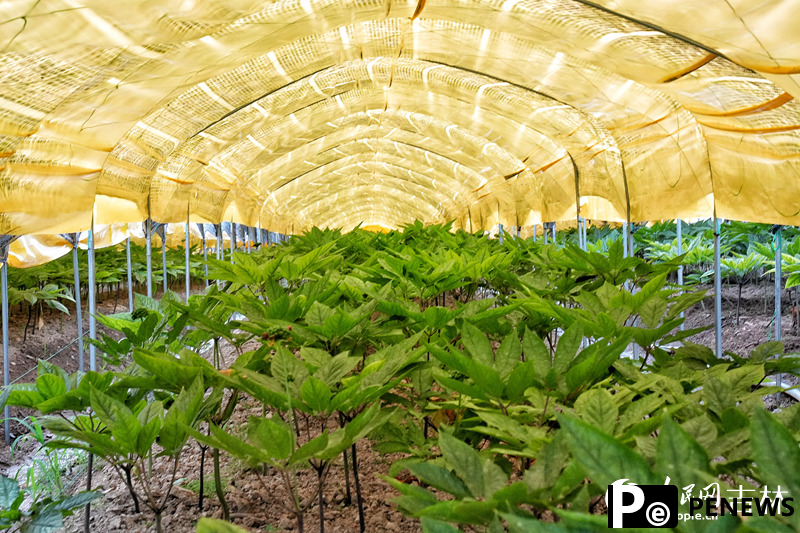
Photo shows a demonstration zone of ginseng seed breeding in Fusong county, Baishan city, northeast China's Jilin Province. (People's Daily Online/Li Yang)
From planting to selling ginseng, Chen Qiang is busier than ever. "The implementation of the 'one ginseng one code' traceability platform, cracking down on counterfeit products, and maximum penalties have helped regulate the market, allowing us ginseng farmers to focus on our business with peace of mind." Chen Qiang is optimistic about the future prices and quality of ginseng.
The power of a single market
Early in the morning, the Changbai Mountain Ginseng Market in Wanliang township, Fushan county, is already bustling with buyers and sellers.
